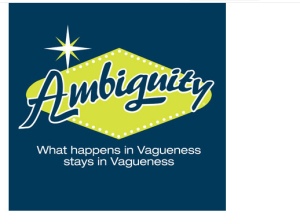This article is from a publication called BedTimes. That title piqued my curiousity as the article was about employee engagement. It transpired that BedTimes was a publication for the sleep products industry. I don’t know what else I thought it might be. And it was a very good article from an employer’s perspective, not a writer, journalist or expert, consultant, or commentator. Someone, as they say, with skin in the game. And that was kind of their point.
The phrase “skin in the game” has been attributed to Warren Buffett about having your own money in an investment, as opposed to just talking about it or investing for others. (It wasn’t Jimmy Buffett unless you count poker games as investments.) I’d kind of hoped it traced back to roman times and gladiators because then it would have something of a literal bent. But no. From an employee engagement perspective, it makes sense. People who actually own a company tend to work, as they say, like they own the company. It’s easy to offer glib advice to people wanting to work their way up corporate ladders to work like they own they company. I actually agree with the advice but it’s often just easy to say. You cannot make others feel like they have a genuine stake. But employers can set things up so that employees do have a genuine alignment between their own goals and that of the company. But it’s foundation stuff, not some ‘plaster over the cracks’ 2-month project.
For a start, Brain-Based Bosses can structure their recruitment processes to seek, hire and retain people who already have goals that align with the company’s. If the company succeeds, then they do. Part of that might be financial but not in isolation. There needs to be more. That’s a whole lot easier than changing people or changing goals or making other people change goals midstream. Those ways lead to a lot of pretending. And, you know, sometimes even that pretending leads to a short term uptick in engagement. ‘Fake it til you make it’ kind of thing. But it isn’t sustainable nor that much of an uptick.
I particularly liked this paragraph in the article about why, in many or most cases, such employee engagement improvement efforts do not work:
“Frankly, it’s because in many cases employees really don’t have a stake. Too many companies try to paste “engagement” initiatives on a foundation that’s fundamentally flawed. It won’t work. True engagement is a natural, organic extension of a company’s culture, and people can’t be cajoled, tricked or bribed into feeling it. There just aren’t any shortcuts.”
New Zealand’s gambling agency the TAB have a slogan, “It means more when you’ve got something on it.” That’s their version of having skin in the game. You can watch a sporting event and appreciate it. You can watch it and might even experience some vicarious emotions if you support the team that’s playing from your country, town, school or one you unilaterally and arbitrarily have chosen because you find their colours, mascot or swarthy south american star player aesthetically appealing. But nothing is quite like the effect on your biochemistry when the team’s loss causes you to lose something too. It might be the money you wagered. It might be you lose face at the pub or workplace the next day. But you lose or win something depending on the results.
It can’t just be the potential loss of a job or bonus if things go south. There needs to be potential wins too. Don’t underestimate the value of pride. When your employees are at parties (in their own time, of course) and others ask them what they do or where they work, what do they say? That’s actually quite a good indicator of pride and engagement, or the lack thereof.
How many employees feel that way about their workplace? Do yours? Does Jimmy Buffet? Of course, his lack of feeling might be due to other causes entirely…












